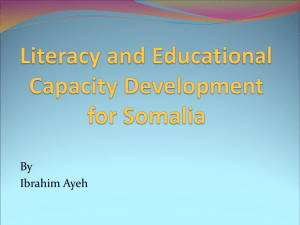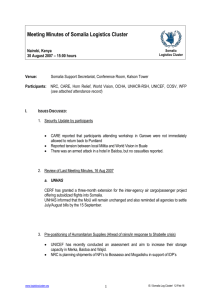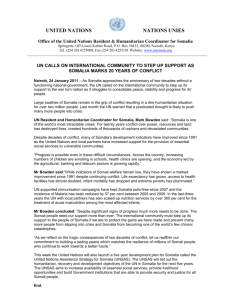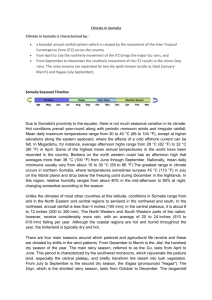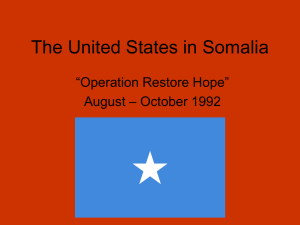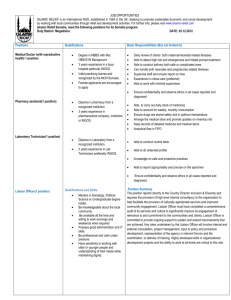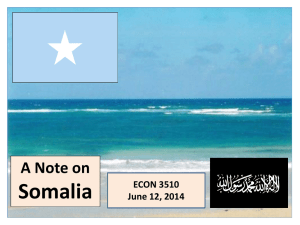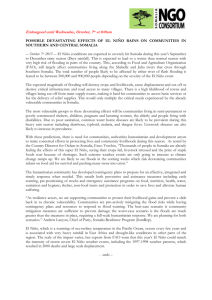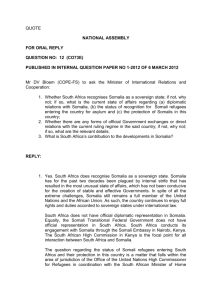essay.doc
advertisement
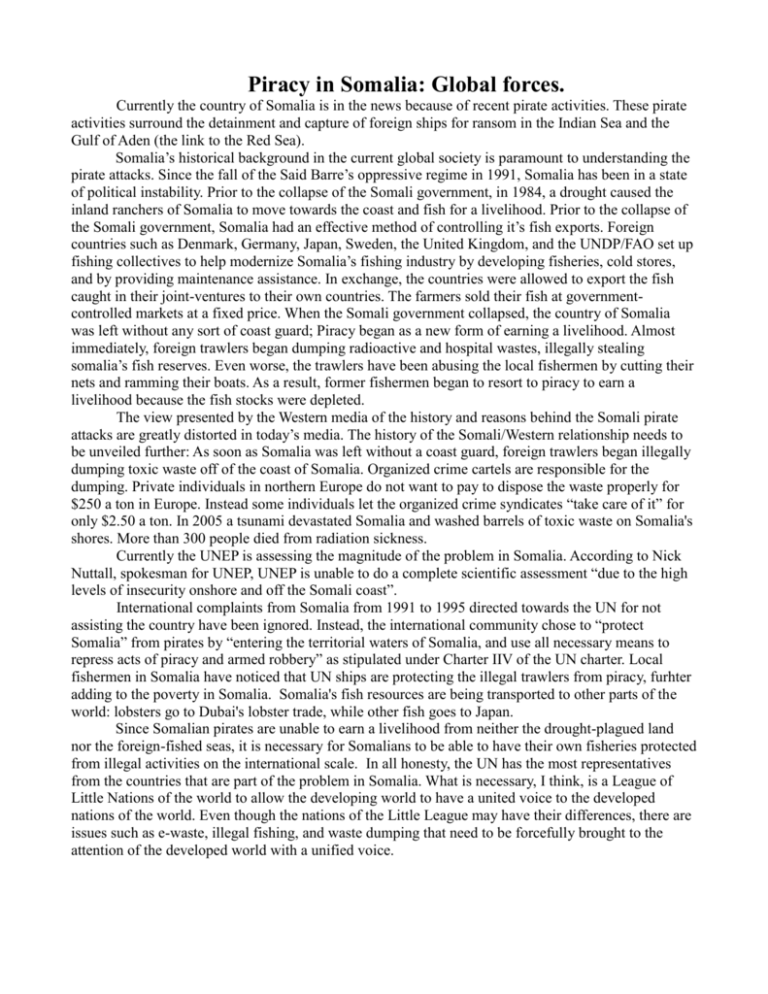
Piracy in Somalia: Global forces. Currently the country of Somalia is in the news because of recent pirate activities. These pirate activities surround the detainment and capture of foreign ships for ransom in the Indian Sea and the Gulf of Aden (the link to the Red Sea). Somalia’s historical background in the current global society is paramount to understanding the pirate attacks. Since the fall of the Said Barre’s oppressive regime in 1991, Somalia has been in a state of political instability. Prior to the collapse of the Somali government, in 1984, a drought caused the inland ranchers of Somalia to move towards the coast and fish for a livelihood. Prior to the collapse of the Somali government, Somalia had an effective method of controlling it’s fish exports. Foreign countries such as Denmark, Germany, Japan, Sweden, the United Kingdom, and the UNDP/FAO set up fishing collectives to help modernize Somalia’s fishing industry by developing fisheries, cold stores, and by providing maintenance assistance. In exchange, the countries were allowed to export the fish caught in their joint-ventures to their own countries. The farmers sold their fish at governmentcontrolled markets at a fixed price. When the Somali government collapsed, the country of Somalia was left without any sort of coast guard; Piracy began as a new form of earning a livelihood. Almost immediately, foreign trawlers began dumping radioactive and hospital wastes, illegally stealing somalia’s fish reserves. Even worse, the trawlers have been abusing the local fishermen by cutting their nets and ramming their boats. As a result, former fishermen began to resort to piracy to earn a livelihood because the fish stocks were depleted. The view presented by the Western media of the history and reasons behind the Somali pirate attacks are greatly distorted in today’s media. The history of the Somali/Western relationship needs to be unveiled further: As soon as Somalia was left without a coast guard, foreign trawlers began illegally dumping toxic waste off of the coast of Somalia. Organized crime cartels are responsible for the dumping. Private individuals in northern Europe do not want to pay to dispose the waste properly for $250 a ton in Europe. Instead some individuals let the organized crime syndicates “take care of it” for only $2.50 a ton. In 2005 a tsunami devastated Somalia and washed barrels of toxic waste on Somalia's shores. More than 300 people died from radiation sickness. Currently the UNEP is assessing the magnitude of the problem in Somalia. According to Nick Nuttall, spokesman for UNEP, UNEP is unable to do a complete scientific assessment “due to the high levels of insecurity onshore and off the Somali coast”. International complaints from Somalia from 1991 to 1995 directed towards the UN for not assisting the country have been ignored. Instead, the international community chose to “protect Somalia” from pirates by “entering the territorial waters of Somalia, and use all necessary means to repress acts of piracy and armed robbery” as stipulated under Charter IIV of the UN charter. Local fishermen in Somalia have noticed that UN ships are protecting the illegal trawlers from piracy, furhter adding to the poverty in Somalia. Somalia's fish resources are being transported to other parts of the world: lobsters go to Dubai's lobster trade, while other fish goes to Japan. Since Somalian pirates are unable to earn a livelihood from neither the drought-plagued land nor the foreign-fished seas, it is necessary for Somalians to be able to have their own fisheries protected from illegal activities on the international scale. In all honesty, the UN has the most representatives from the countries that are part of the problem in Somalia. What is necessary, I think, is a League of Little Nations of the world to allow the developing world to have a united voice to the developed nations of the world. Even though the nations of the Little League may have their differences, there are issues such as e-waste, illegal fishing, and waste dumping that need to be forcefully brought to the attention of the developed world with a unified voice.
